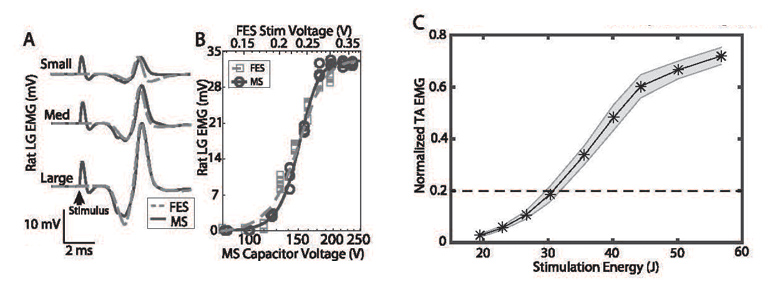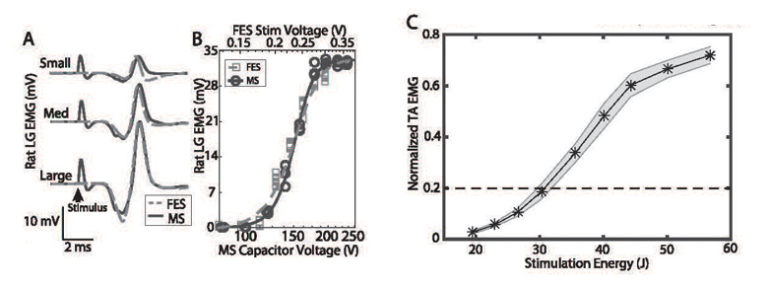
Previous reports of magnetic stimulation of the peripheral nervous system (PNS) used various coil geometries, all with outer diameters larger than 35 mm, and stimulation energies in the 50 J range to evoke neural excitation. Recent reports of central nervous system (CNS) activation used sub-mm-scale solenoid coils with mJ energy levels. The goal of this study was to translate the lower energy levels from the CNS to the PNS via using smaller coils placed in closer proximity to the neural tissue. Such a performance improvement would advance the state of the art of magnetic stimulation and provide a path towards new neuroprosthetic devices. Primarily, we investigated the range of coil outer diameters from 25 mm down to 5 mm to better understand the dependence of coil diameter on energy required for PNS activation. Nine cm- and mm-scale copper solenoid coils, with various resistances, inductances, inner and outer diameters, and heights were compared by quantizing neuromuscular responses to magnetic stimulation via capacitive discharge excitation of rat sciatic nerves in vivo. Additionally, the effects of stimulus duration and coil position were investigated. As opposed to prior work, this study compares a subset of stimulation parameters in an intact nerve preparation, and shows that magnetic stimulation with coils that abut the nerve is a reliable, effective method of neuromuscular stimulation. Although we observed different energies required for neuromuscular activation depending on the coil and excitation parameters used, for the experimental configuration, devices, and stimulus waveform shapes presented in this manuscript, no systematic dependence of PNS activation on coil diameter was found, even for the mm-scale coils investigated herein. However, there was a clear relationship between discharge circuit capacitance and energy required to evoke a neuromuscular response. Coils approximately 12 mm in outer diameter and larger consistently evoked responses, whereas coils 5 mm in outer diameter did not. Furthermore, we observed meaningful neuromuscular excitation when stimulating with energies as low as 20 J. Although this is an improvement over prior work, it is still orders of magnitude greater than the energy required for conventional electrical stimulation, suggesting that these devices are presently not suitable for use in an application requiring continued pulsed stimulation. Nevertheless, these devices are suitable for basic research and as clinical tools that infrequently stimulate, such as in diagnostic applications.

